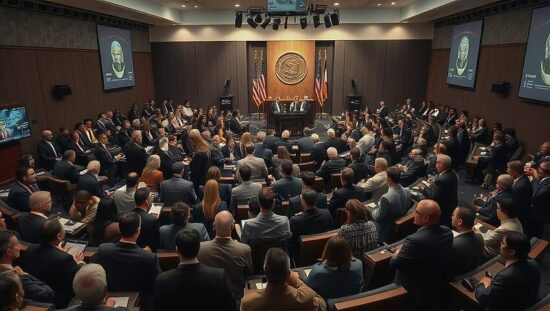European broadcasters and parliamentarians are mounting pressure on European Commission President Ursula von der Leyen and High Representative for Foreign Affairs, Kaja Kallas, to intervene against proposed visa restrictions imposed by the United States government on foreign journalists. The move, revealed in a report by Handelsblatt, has sparked concerns over a concerning trend towards curtailed press freedom.
The European Broadcasting Union (EBU), representing 43,000 journalists across Europe, has formally urged the Commission to actively oppose the planned curtailment of journalist visas. The US government intends to reduce the validity period of these visas from five years to a mere eight months. Pascal Albrechtskirchinger, head of ZDF’s Brussels bureau, characterized the move as “a measure we otherwise only know from authoritarian states” highlighting its potential to stifle independent reporting. He suggested the regulation aims to obstruct reporting by foreign media outlets beyond the control of the US government.
The EBU’s letter emphasizes the critical role of independent journalism in ensuring accurate global reporting on US affairs, underscoring that limiting foreign journalists’ ability to operate freely within the country risks compromising international understanding.
Separately, leaders of the European Parliament’s CDU/CSU, SPD, Greens and FDP factions have issued a second letter directly addressing President von der Leyen. They implore her to publicly oppose the restrictions, cautioning that silence on the issue would send a “devastating signal” regarding Europe’s commitment to press freedom. The letter underscores a broader anxiety that the US’s actions could set a precedent for restriction of media access globally.
The European Commission has declined to comment on the letters, fueling speculation about the extent of its willingness to challenge the US government on this matter. The situation raises critical questions about the EU’s role in defending global press freedoms and the potential ramifications for transatlantic relations.





